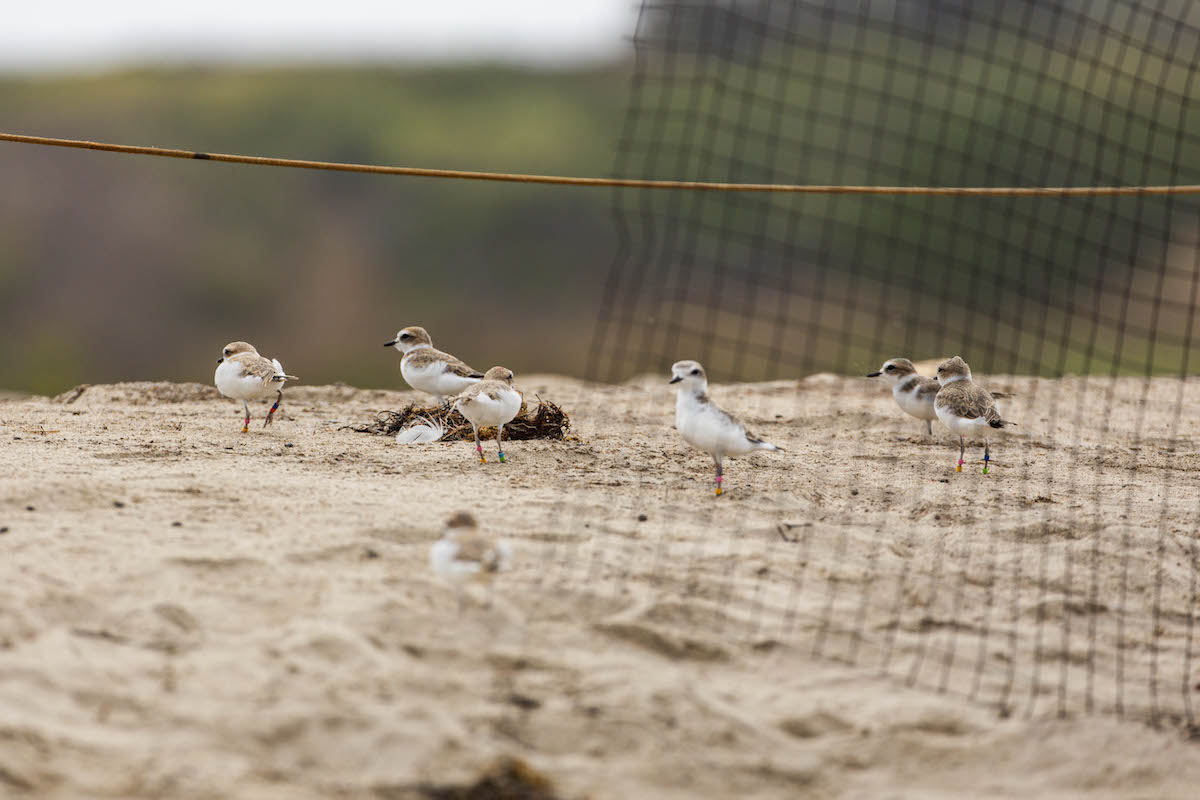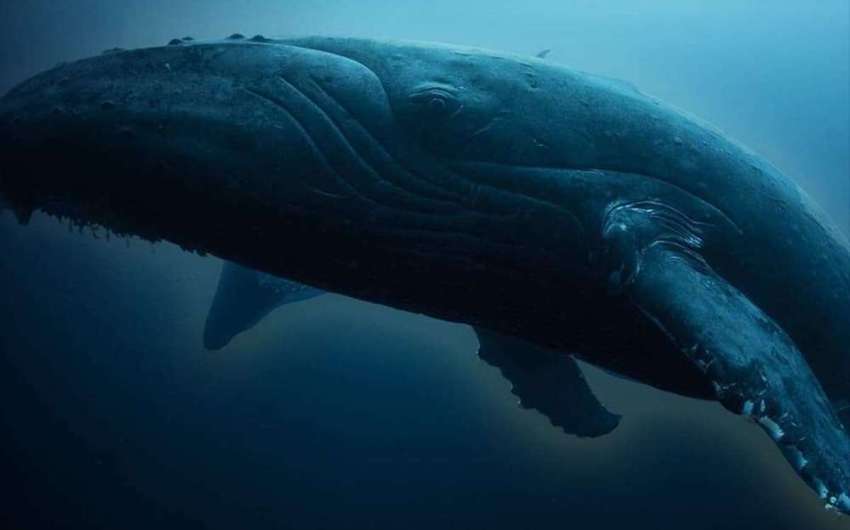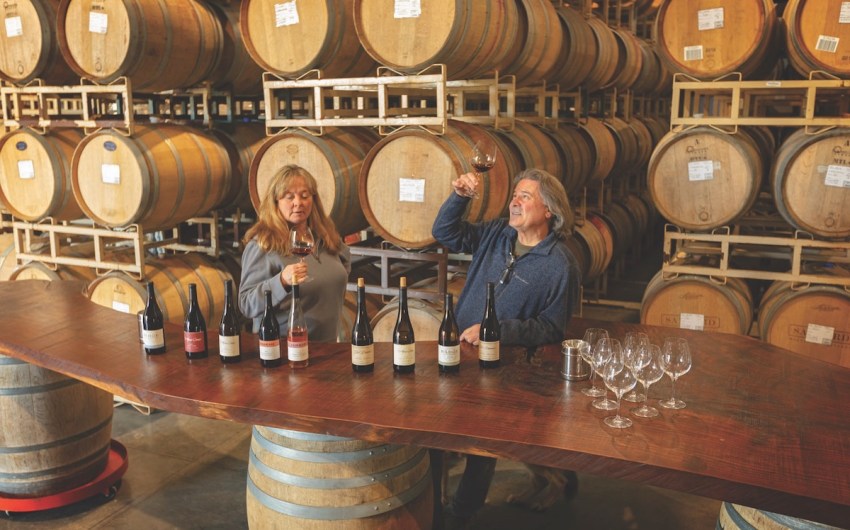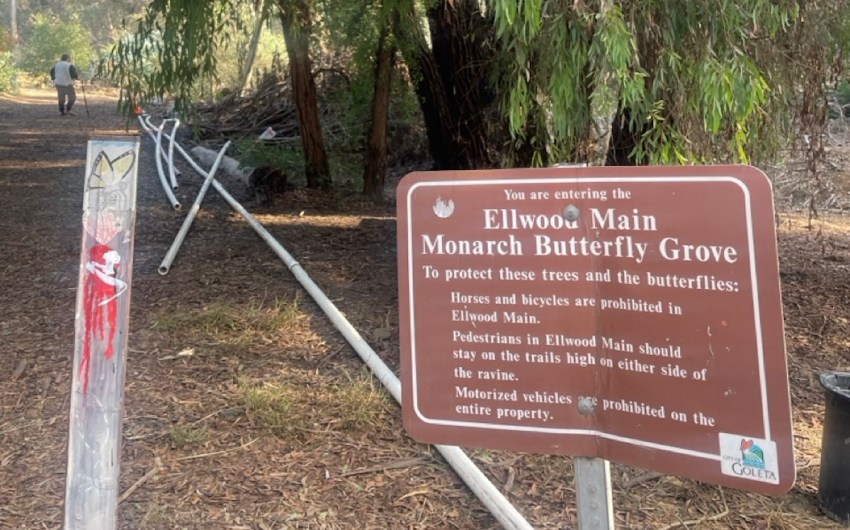Snowy Plover Chicks Released into the Wild at Beach in Isla Vista
Chicks Were Hatched from Abandoned Eggs Found at Coal Oil Point Reserve and Other Central Coast Beaches

Being abandoned on the beach is a sorry way to start life.

However, 11 western snowy plover eggs found in deserted nests at the Coal Oil Point Reserve and other Central Coast beaches in the last month scored a second chance. After being incubated and reared at the Santa Barbara Zoo for 35 days, the chicks from those abandoned eggs were released back into the wild at the reserve this Tuesday, ready to fly and feed all on their own.
The tiny, white-and-brown shorebirds — a protected species — resembled little cotton balls with legs as they scuttled out of their temporary cages on the sand.
The birds nest on fenced-off dunes at Sands Beach within the reserve, which are monitored by reserve staff about three days a week.
“Sometimes we find nests and see that the parent is no longer there,” said Jessica Gray, a conservation specialist with the reserve. “We have permits to go inside of the nesting area to check the nests and collect the abandoned eggs.”
There are various reasons why the eggs would be abandoned — predation, being buried by the wind, washed out during high tide — but none of the collected eggs “would have made it on their own in the wild,” Gray explained.
Once collected, the eggs are taken straight to the zoo, where they “hatch into these sweet little chicks,” she said. They are taken care of by trained zoo staff for about a month, and after passing inspection, the flight-school graduates are tagged and released.
“It feels really exhilarating to see them take their first flight after being in captivity,” Gray beamed.

The Snowy Plover Rehabilitation Program is a partnership between the S.B. Zoo, UC Santa Barbara, and the U.S. Fish and Wildlife Service. Ever since the first group of chicks were rescued and rehabilitated in 2016, the program has seen 129 chicks released back into the wild.
“These birds came in with just virtually no chance of survival,” said Nadya Seal Faith, a conservation and science associate at the zoo. “And so the fact that we’re able to see them flying in the wild is an incredible experience — we’re seeing them be the plovers they were meant to be.”
The release follows Coal Oil Point’s new dog ban, which began in March to help protect the threatened bird species from curious canines. Cristina Sandoval, the reserve’s director, said the ban has been a complete success.
“There was a huge change in the disturbance rate to the plovers — the number of dogs and the number of dogs off leash is nearly zero right now,” she explained. “This was a big step in the right direction, and the community was 100 percent on it. We will need a few years to see how this impacts the population of lovers, but this year, we’re gonna have a great breeding success.”
While the reserve and the zoo are still compiling data on the survival rate and movement of the released chicks, Sandoval said that many stay at the reserve. But they are also nesting on other nearby beaches, including Carpinteria State Beach, because they are “really used to people.”
“I call them the ‘urban pioneer plovers,’” Sandoval laughed.

Premier Events
Sun, Dec 15
3:00 PM
Santa Barbara
Santa Barbara Treble Clef Chorus Holiday Concert
Sun, Dec 15 3:00 PM
Santa Barbara













You must be logged in to post a comment.